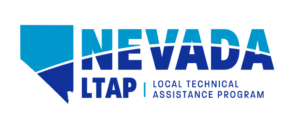This course is scheduled for July 10, 2024 (8:00–10:30 am PT)
The course fee is $20.
Course Summary:
This 2.5-hour virtual training explores the basics of longitudinal roadside barriers. Discussion will focus on why and when barriers are needed on the roadway, review the types and characteristics of barriers, and find out where to locate guidance for placing and installing barriers. Finally, there will be a review of maintenance requirements for roadside barriers and discover the important role maintenance plays in keeping the barriers performing as they should.
Participants will have a chance to use resources, such as the AASHTO Roadside Design Guide as well as Nevada-specific design guides and specifications, to answer questions and make decisions about real-world scenarios you might encounter when placing barriers.
Barrier Basics is a required course of the Road Scholar Program.
Learning Objectives:
- Identify several standards for barriers selection and placement.
- Identify warrants for the use of barriers.
- Compare the benefits and challenges of different types of barriers and end treatments.
- Explain three criteria for barrier placement.
- List basic elements of barrier inspection.
- Given scenarios and the NCHRP 656 criteria, rank the priority for repairing damaged barriers.
To prepare, please ensure that a working speakers and a microphone is in place to participate in this class.
Intended Audience
This course was designed for State, regional, county, city and tribal personnel who manage, inspect, maintain, and repair longitudinal roadside barriers.
Prerequisites:
None.

Instructor
Jeff Jasper’s 24-year career at the Kentucky Transportation Cabinet (KYTC) culminated in a five-year term as Director of the Division of Highway Design. Prior to this, Mr. Jasper managed KYTC’s Standard Drawing program and was the agency’s technical expert on roadside safety design, providing oversight on roadside design standards and teaching roadside design classes to Cabinet staff and engineering consultants.
As the current program manager of the Kentucky Transportation Center’s (KTC) Project Development Program, he directs research on highway project management, roadway design engineering, and roadside safety. At KTC, Mr. Jasper has spearheaded several roadside safety research initiatives for KYTC, including In-Service Evaluation of High-Tension Cable Barrier Systems and MASH Analysis of KYTC’s Standard Drawings.


Registration
Continue with the enrollment button below. If you do not receive an email regarding your reservation for a class spot after enrolling, please email [email protected] and mention the class and date for which you are trying to enroll.
Registering multiple people or know you need an invoice for payment in advance? Contact April at [email protected] with the names and email addresses to be registered/paid.
Also, to ensure you receive timely email confirmations and reminders, please add these emails [email protected], [email protected] and [email protected] to your safe sender list. Learn how to add to safe senders in Outlook and Gmail.
Payment
The non-refundable registration fee is $20 and is payable by check or credit card. Payment must be received prior to the first day of class.
If paying by credit card, please visit Pay Trace. All major credit cards are accepted. In the field labeled “Invoice #”, please type the course name, date, and location to help with processing.
If paying by check, forward your enrollment email to whomever completes training purchases. Checks should be sent with a copy of your registration reservation email to Applied Pavement Technology, Inc., Airport Plaza Office Building, 1755 E. Plumb Lane, Suite 264, Reno, Nevada 89502, Attn: Tracey Smith.
For questions, please call 217-693-3290 or email [email protected].
- Enrollment in this course is now closed.

